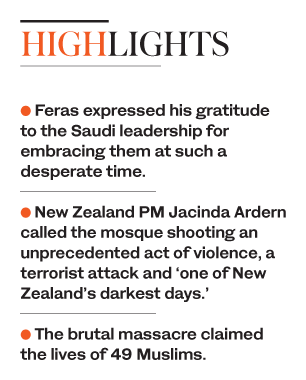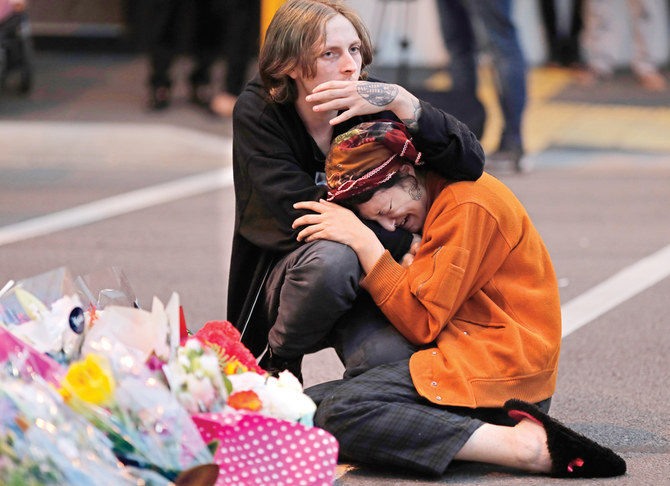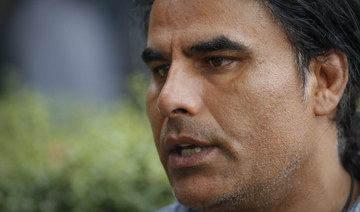RIYADH: “My father lived a full life. It was a good life,” Feras Al-Harbi told Arab News.
Saudi national Mohsin Al-Harbi lived in New Zealand for 25 years. He worked in water desalination.
Feras said his father was a good man - a devout Muslim and a part-time imam, who sometimes gave the Friday sermon at one of the mosques where Friday’s terror attacks took place.
New Zealand’s Prime Minister Jacinda Ardern has called the massacre an unprecedented act of violence, a terrorist attack and “one of New Zealand’s darkest days.”
Moshin was not giving the sermon on Friday – but he was in one of the mosques as the attack began which left 49 dead and dozens injured – including Moshin.
A photo circulated on social media that captured the moment Mohsin was carried out of the mosque on a stretcher. He was being loaded into an ambulance, his finger pointing to the sky.

At first Feras was told his father had been injured in the massacre.
“Eight hours later he passed away,” Feras said.
“We accept his destiny and Allah’s will. I’m grateful and thankful to Allah in all situations and circumstances.”
Amid the chaos, Mohsin’s wife Manal had searched for her husband in the mosque where earlier worshippers had been praying.
Overwhelmed by the horror which lay before her - bodies strewn across the blood-soaked carpet - she collapsed having suffered a heart attack.
“The foreign ministry called me and informed me that I must come to the hospital to identify my brother-in-law’s remains,” Jordanian media reported Moshin’s brother-in-law Bader Dukhan as saying.
“I then found out what happened with my sister (Mohsin’s wife). She’s in a critical condition at the moment after her heart attack.”
Bader said New Zealand authorities contacted Jordan’s foreign ministry to help their mother and brother be by her side.
Now people have started paying tribute to Moshin – many of whom experienced his kindness, including student Moshari Sa’ad.
“Last January, I visited the mosque in southern New Zealand. It is considered one of the most important mosques there with the vast social activities it holds,” he wrote on social media.
“One day, at 10 a.m. in the middle of the week, I found Uncle Mohsin with his sleeves rolled up and in sweatpants sweeping the mosque himself. He smiled and welcomed me warmly.”
Moshin’s body has been taken to Saudi Arabia where he is buried in Al-Baqi cemetery in Madinah.
“I want to thank King Salman for his support and Prince Faisal bin Salman, governor of Al-Madina, for his assistance and swiftness in helping us to return our father’s body and bury him,” Feras added


























